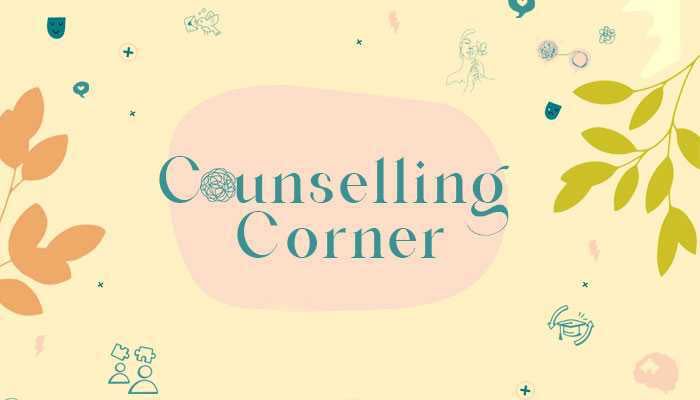'My fiancée and I struggle with communication issues. Please help!'
"My fiancée usually feels that I blame or find faults in her, even though it is never my intention," says a fiancé seeking relationship advice
November 13, 2025
Dear Haya,
I needed some advice regarding communication issues with my fiancée. Whenever I try to communicate with her regarding something important, our conversations tend to turn into heated arguments.
My fiancée usually feels that I blame or find faults in her, even though it is never my intention. This defensiveness of hers has resulted in my hesitance to talk to her and express my feelings about various issues that I feel are crucial to address before we enter our married life. I don’t want to be misunderstood nor do I want to upset her. I care for her and want to have a healthy and calm relationship with her. But our conversations mostly end on a bitter note.
Would you have any practical advice on how I can maintain a healthy relationship with her and also express my thoughts more effectively to avoid conflict in our communication?

Dear anon,
Thank you for sharing such a heartfelt, genuine and relatable query.
What you are describing is something very common in relationships and something many would be able to relate with, where one partner tries to address an issue and the other one views it as criticism or blame which further leads to defensiveness, and both people end up feeling unheard and frustrated.
The key here is not to avoid difficult conversation, but learning how to have them in a way that feels safe and non-threatening for both partners.
I'm hearing that each time you have tried to communicate something that is important to you it turns into a heated argument. Your intention is pure, but it ends up with your fiancée feeling like you are finding faults in her. That in itself is a great starting point.
Now, you're feeling stuck and hesitant to express yourself due to previous experiences and at the same time these conversations are important for you to have and be clear about before you get married.
The good news is that you can resolve this via the lens of healthy and effective communication.
Effective communication is a skill each one of us has the power of mastering. It's about how we communicate something to another and how we listen to the other. It requires mastering active listening, knowing how to express and own your needs clearly, fostering an environment of trust and emotional intimacy. It is the foundation for resolving conflicts, ensuring both partners feel heard and valued.
Sounds overwhelming? It's not. Let's take a look at your current scenario and what are some practical steps you can try:
Have a query for Haya? Fill this form anonymously or email to [email protected]
How to communicate effectively
Create a safe space and time for dialogue: When we want to have a difficult conversation with our partner, time and space matters. To have a discussion pick a time when she is relaxed and not distracted in a neutral and comfortable space. Let her know there is something you wanted to speak to her about and chalk out a time that works for you both.
Start with emotional safety: Often times conflicts arise because one or the other partner is not feeling emotionally safe. It's critical for both partners to feel emotionally and psychologically safe. A few ways you can create that safety is by:
- Beginning with warmth and reassurance.
- Avoid conversations that start with "you always" or "you never".
- Keep your body language open.
Shift the intention from problem solving to understanding: Before you begin a conversation remind yourself that your goal is not to fix something, it is to understand one another better. When she feels that you are trying to connect rather than correct her defensiveness will naturally soften. Let her know that you value her and you want to understand one another better.
Use "I" statements and be clear and specific: When starting a conversation, wanting to discuss goals, alignment feelings, needs etc start a fresh conversation using "I" statements. For example, "The last time we had a conversation it felt like a heated debate and left me feeling very frustrated and misunderstood. I'd really like to discuss some things with you. State your needs taking ownership of yourself in a way that is as clear and specific. Doing that will reduce defensiveness and encourage open dialogue.
Mind your tone: The way we say something matters. Ensure that your tone matches your intentions. Keeping a calm, slow-paced speech can reduce defensiveness almost instantly.
Get curious, listen to understand: It may be that your fiancée is getting triggered by what you say. A great way to find out is to get curious and ask her what is it that is upsetting her, how is it making her feel, and what is it bringing up for her.
Validate before you explain: If she reacts defensively validate her experience before defending yourself. For example, "I can see why that may have upset you, that wasn't my intention and I get how you feel." Validation doesn't mean agreement, it simply means you acknowledge her feelings as real and understandable.
Take breaks when things get heated: If you feel things are getting too heated and worked up, say "I think we both are getting too worked up. Can we take a short break and talk when we both are calmer?" or "I don't want us to say things we don't mean". A short break can prevent escalation and show emotional maturity.
Reinforce the relationship, not just the issue: After difficult conversations end on a positive or reassuring note. Let her know these things are important for the both of you and your relationship, and you'd like to have these discussions aligned before marriage. And you may not have figured it all out but you're glad you both are trying. This reminder helps both partners feel secure despite agreements.
Reflect after conversations: After you have had the conversation, reflect on yourself and ask yourself:
- Did I listen as much as I spoke?
- Did my words make her feel safer or more threatened?
- What can I adjust next time?
This awareness will help you evolve as a skilled communicator over time.
Start here and see how it goes. Know that effective communication is not a one time thing, it takes time, practice and emotional maturity to master. And last but not least, always remember underneath every conflict is a human being with a deep desire to be seen, understood and accepted. When we approach communication and relationships with that lens, lots of things fall into place.
Wishing you the best.
— Haya

Haya Malik is a psychotherapist, Neuro-Linguistic Programming (NLP) practitioner, corporate well-being strategist and trainer with expertise in creating organisational cultures focused on well-being and raising awareness around mental health.
Send her your questions by filling this form or email to [email protected]
Note: The advice and opinions above are those of the author and specific to the query. We strongly recommend our readers consult relevant experts or professionals for personalised advice and solutions. The author and Geo.tv do not assume any responsibility for the consequences of actions taken based on the information provided herein. All published pieces are subject to editing to enhance grammar and clarity.













